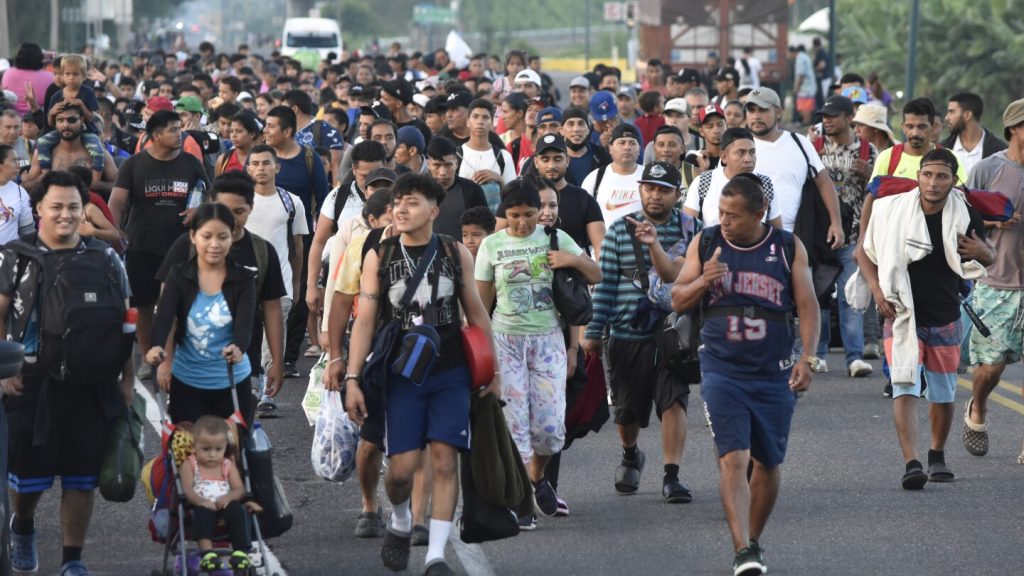A group of 2,000 migrants from various countries embarked on a journey through southern Mexico in an attempt to reach the U.S., despite previous failed attempts by similar groups. The migrants, including families, women with children, and adults, started walking from Tapachula, the primary access point to Mexico’s southern border, with the goal of reaching the U.S. before the November presidential election. Many expressed concerns about President Donald Trump winning and closing the border to asylum-seekers, prompting them to make the arduous journey.
The formation of this new caravan coincides with U.S. President Joe Biden’s decision to withdraw from the 2024 race for the White House. While some migrants were unaware of Biden’s announcement, many voiced fears about the implications of a Trump presidency on their situation. Laydi Sierra, a Venezuelan migrant traveling with her family, expressed a desire for Trump to lose the election, citing his harsh stance on migrants. Daily, migrants leave Tapachula en route to the U.S. border, but larger groups of hundreds or thousands have become a common occurrence in recent years, typically in response to changes in regional migration policy.
These migrant groups are often led by activists or organized by migrants themselves who are frustrated with the slow process of obtaining legal documents to stay in Mexico. Carlos Pineda, a Salvadorian migrant who left his country due to lack of work, mentioned that around 30 people were organizing the current group. As the migrants passed by closed migration checkpoints, they chanted slogans like “Yes, we can,” reflecting their determination to continue their journey. The group hopes to cover 40 kilometers (24 miles) on foot on their first day, aiming to make progress towards their ultimate goal of reaching the U.S. border.
The situation of the migrants highlights the ongoing challenges faced by those seeking asylum or better opportunities by embarking on perilous journeys through unfamiliar territories. The uncertainty of the political landscape in the U.S. has added to their concerns, driving some to take action before the election takes place. As the caravan moves through Mexico, the migrants continue to face obstacles and hardships, but their determination and resilience are evident as they push forward towards their destination. The impact of their journey extends beyond the physical distance covered, shedding light on the broader issues of migration, policy, and human rights in the region.


